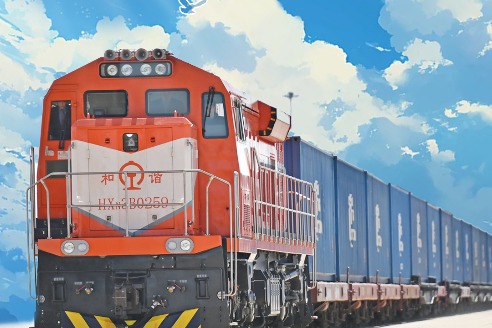Xinjiang's high-quality development, opening-up endeavors yield fruitful results


BEIJING -- Northwest China's Xinjiang Uygur autonomous region has seen remarkable growth across key economic indicators since last year, with its growth of GDP, investment, consumption, import and export, fiscal revenue and resident income levels all ranking among the top five nationwide.
Erkin Tuniyaz, chairman of the regional government, highlighted these achievements during a press briefing held in Beijing on Tuesday, noting that "2023 marked the best year in terms of the quality and efficiency of economic and social development in Xinjiang in recent years."
Xinjiang has committed to expanding high-level domestic and international opening up, building itself into an important corridor linking Asia and Europe and a gateway for China's opening up in the west, said Erkin Tuniyaz.
Over the past two years, Xinjiang's total import and export volumes have surged by 57 percent and 45.9 percent, respectively.
Meanwhile, the region is actively constructing a modern industrial system. Based on its rich resources and industrial foundation, Xinjiang is accelerating the development of major industrial clusters including oil and gas, coal and coal-fired power generation, a coal chemical industry, green mining and strategic emerging industries. The integrated development of primary, secondary and tertiary industries is increasingly improving, according to Erkin Tuniyaz.
He highlighted Xinjiang's roles as a strategic base for China's energy and resource security, and a crucial supply base for high-quality agricultural and pastoral products used nationwide.
In the first quarter of 2024, Xinjiang's GDP grew by 5.6 percent year on year, the value-added industrial output of enterprises above designated size increased by 8 percent, while its foreign trade volume expanded by 42.7 percent. These indicators exceeded expectations, confirming a promising start to 2024, Erkin Tuniyaz said.





































